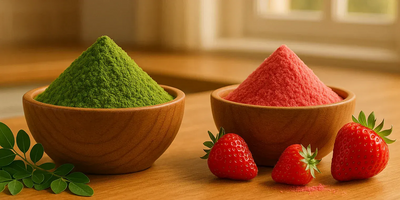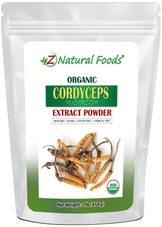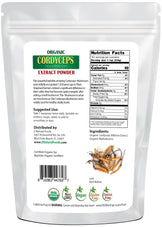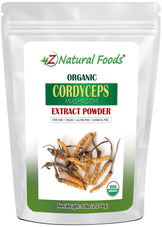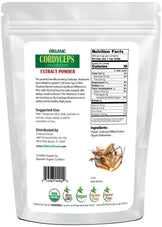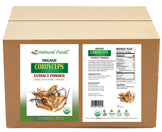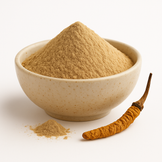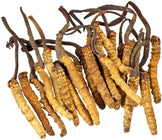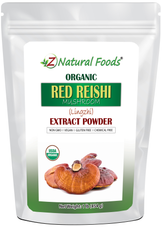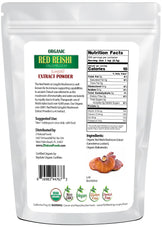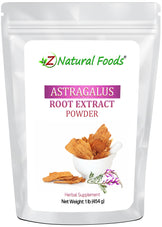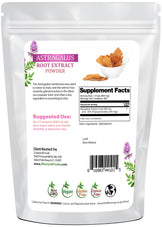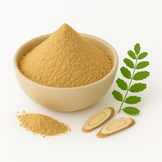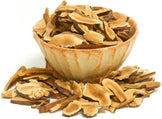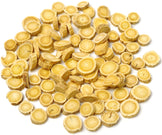Description
Description
If you have ever wondered what major (primary) tonic herbs are, and what they do, you have found the right article.
To understand what major tonic herbs are, we must first explore Traditional Chinese Medicine (TCM).
TCM principles dictate there are many factors to living a healthy and fulfilling life.
Some of those factors include lifestyle, your constitution, the level to which you take proactive measures, your ability to avoid and adapt to external stressors, and a little bit of luck.
In TCM, one’s constitution is measured in life force, aka Jing.
If your Jing is naturally substantial (meaning you are more vibrant, resilient, and robust), it means that you have won the genetic lottery and have a better shot at living a long and vibrant life; or so we thought.
In simple terms, we have learned from science, tradition, and a little common sense that those with a strong constitution due to good genetics are equally vulnerable to dying young, with the primary culprit being an unbalanced lifestyle.
This one factor alone can strongly deplete one’s Jing whether or not they have strong genetics.
Therefore, the need for tonic herbs has excellent relevance.
To answer “What are major tonic herbs?”, it is vital first to understand how a tonic herb is defined based on function and criteria. In simple terms, four primary fundamental aspects define a tonic herb:
- Tonic herbs create and support a state of physical, mental, and emotional well-being through the appropriate balance of Yin and Yang energy to attain vibrant health.
- Tonic herbs can be used for an unlimited period with no adverse effects
- No matter how long an individual uses tonic herbs, they never build up a tolerance.
- True tonics come from their authentic source and spiritual homeland. This principle is known in Daoist herbalism as Di Tao and makes a vital difference in potency and efficacy.
Tonic herbs are not used to treat or prevent specific issues.
They promote and support general well-being by enhancing energy and regulating function.
The priority is not about healing but gently promoting one’s health.
Tonic herbs provide adaptive Qi, allowing us to deal with daily stressors more efficiently. Ultimately, this will enable us to grow as human beings.
There are four primary categories of tonic herbs:
- Qi Tonics: Also known as energy tonics, with a primary function of increasing energy production. TCM believes they enhance nutrient absorption, yielding blood and energy. They are known to support metabolic processes, influence the spleen and nurture the lungs.
- Blood Tonics: These are known to nourish and balance blood via optimizing nutrient utilization. Blood nourishes the tissues and provides a means of distribution for nutrients, hormones, and immune cells. Blood tonics are commonly used to support the quality of one’s skin. Some blood tonics also work as a blood vitalizer to improve microcirculation.
- Yin Tonics: Yin is the accumulation of storage and energy condensed in all body tissues, primarily in all significant organs, specifically within the kidneys. The stored energy in the kidneys is known as the Yin essence and is considered the body’s fundamental reserve. Yin tonics are associated with preserving the quality of life.
- Yang Tonics: Yang is the utilization of stored energy(Yin). Yang tonics have a warm or hot power, are associated with creativity, and are therefore believed to build strength and courage. Yang herbs are used to stimulate metabolism, build muscle, and support the skeletal system.
All tonic herbs nourish at least one of what TCM calls, The Three Treasures.
The three treasures are interconnected and contribute to overall health and well-being. They are as follows:
- Jing is essence primarily stored in the kidneys. Jing is one’s constitution, regulates the body’s growth and development, and works with Qi to protect the body from harmful external conditions. Poor constitution, blood loss, and excessive sexual activity can cause jing essence deficiencies.
- Qi is a life force or vital energy stored in the kidneys. Both the physical and emotional are manifested as Qi. One is inherited from our parents, and the second is derived from essential substances like air, food, and water. Deficiencies are caused by poor nutrition and digestion, chronic stress, and constrained breathing.
- Shen is the emotional and spirit layer of our being that reflects the state of our nervous system. Shen lives in the heart and is said to “preside over the activities that take place in the spiritual and mental planes.” Because Shen lives in the heart, people with disturbed Shen may experience anxiety, stress, difficulty breathing, and insomnia. In such cases, the primary weakness is from the spleen, which cannot generate enough blood to nourish the heart and anchor the Shen.
Western herbalism vs Eastern tonics (the difference)
It is important to note that Western herbalism and Eastern tonic herbalism speak a lot about a category of herbs known as adaptogens.
It is a common mistake to think that tonics and adaptogens are identical.
While tonics and adaptogens are defined based on different criteria and are ultimately separate entities, some overlap exists.
For example, Qi tonics do fulfill the requirements for what Western herbalism defines as an adaptogen.
So, in simple terms, while Qi tonics meet the requirements as an adaptogen, western adaptogens do not fulfill the criteria for being a tonic.
The primary reason is that we often build a tolerance for Western adaptogens. This usually requires a break and/or the rotation of herbs to prevent this common issue.
In some cases, it may not be the herb itself but the species of the herb. For example, a commonly used adaptogen is Rhodiola. The species most widely used and spoken about is Siberian Rhodiola. While it is a very effective herb, this species has several issues.
First, people build a tolerance to it, so it can not be used for an extended period without taking a break. Next, it can be very stimulating, warming, and drying, so if used by individuals who manifest excessive heat or aggressiveness, it may exacerbate this issue.
On the other hand, Tibetan Rhodiola is commonly used in tonic herbalism because it has a more balanced effect, and we don’t build a tolerance to it.
Finally, to understand tonic herbalism, we must mention the six vital aspects of this system.
- Oneness and the unity of everything: Humans, nature, organs, and the mind and body all function as one.
- Yin and Yang: Opposing forces within the whole.
- The three treasures: Jing(The essence of life), Shen(The core of emotions stored in the heart), and Qi(The circulating life force)
- The four seasons: Adapting to seasonal changes synchronizing with nature’s yin/yang.
- The five elements theory: The world is made up of the fundamental elements metal, wood, water, fire, and earth, all of which create cyclical changes.
- The Chinese Organ System: In TCM, organ systems go beyond the boundaries of anatomy. All organs are integrated units based on circulation, utilization of Qi, and how it manifests.
So, what are major tonic herbs?
Ultimately, there are no simple broad answers because TCM is a complex system that looks at the individual rather than the masses.
Major or primary tonic herbs are plant or, in some cases, animal part extracts that have been heavily used for hundreds to thousands of years, considered prized in tonic herbalism, and support and nourish at least one of the three treasures.
Here are 4 of the most popular major tonic herbs and where you can get more information:
- Red Reishi Mushroom Extract Powder
- Astragalus Extract Powder
- Goji Berry Extract Powder
- Cordyceps Mushroom Extract Powder
In conclusion, tonic herbalism is one of the oldest and most well-established systems for supporting overall well-being, and tonic herbs have an exceptionally well-established history for usage, safety, and effectiveness.
So, take your tonics, nourish your three treasures, and live a happy, vibrant life.


